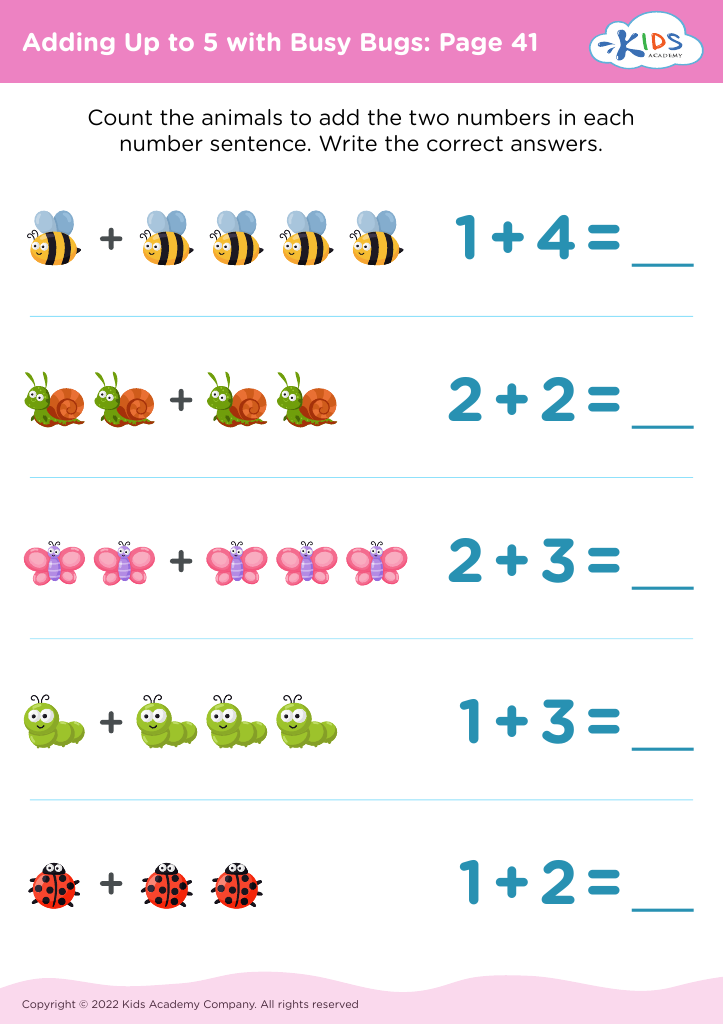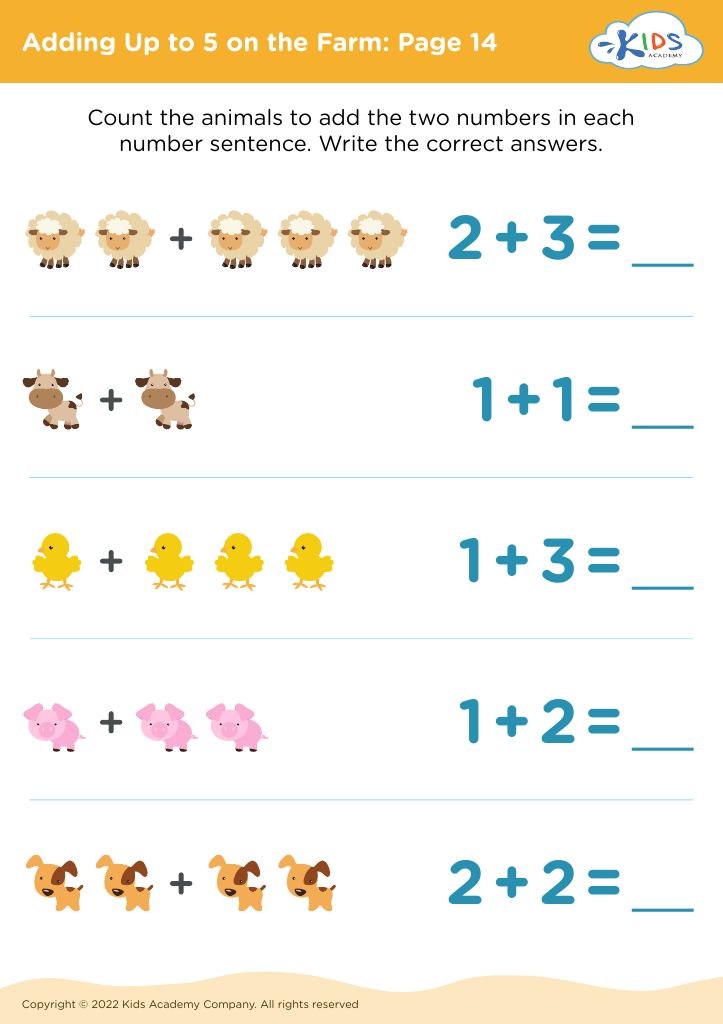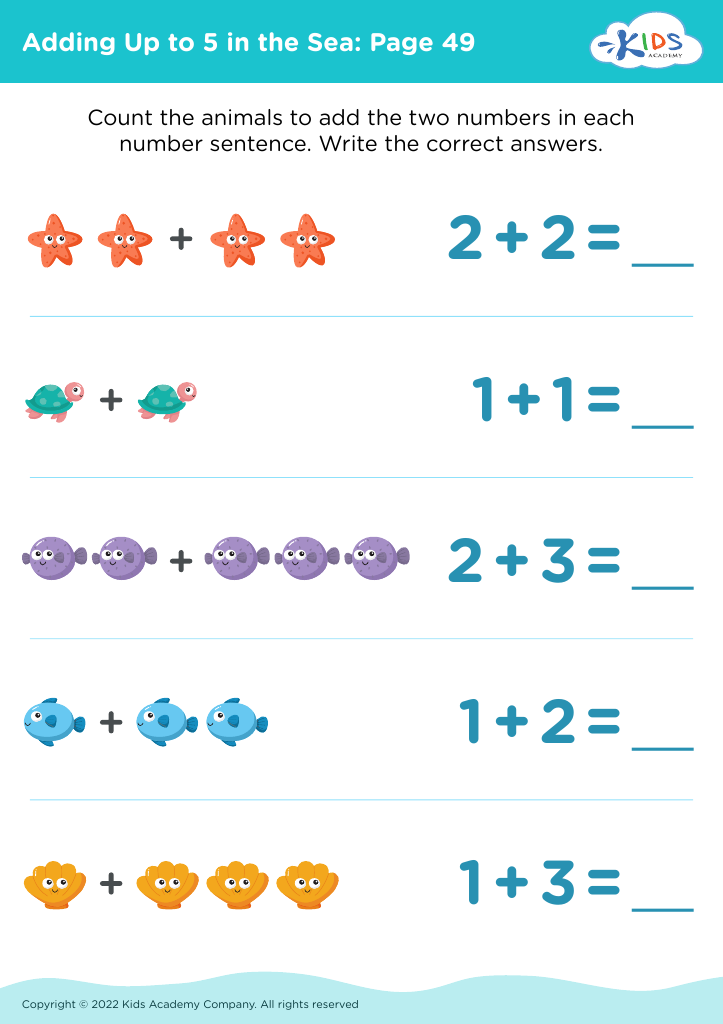Understanding number values Addition & Subtraction Worksheets for Ages 4-6
3 filtered results
-
From - To
Explore our "Understanding Number Values Addition & Subtraction Worksheets" designed specifically for ages 4-6! These engaging worksheets help young learners grasp the foundational concepts of number values through fun activities and illustrations. With a focus on visual learning, children will enhance their addition and subtraction skills while developing a strong understanding of how numbers interact. Perfect for at-home or classroom use, our resources foster early math confidence and critical thinking. Help your little mathematicians discover the joy of numbers with colorful worksheets that make learning interactive and enjoyable. Start the journey of arithmetic mastery today!
Understanding number values, along with addition and subtraction, is crucial for children aged 4-6, as it lays the foundation for their mathematical development. At this age, children are naturally curious and eager to learn, making it an optimal time for them to grasp essential numerical concepts.
Parents and teachers should care about this foundational understanding because early mastery of number values helps children develop critical thinking and problem-solving skills. When children comprehend the meanings of numbers and how they relate to real-world scenarios, they gain confidence in their ability to handle everyday tasks, such as counting objects or sharing snacks equally.
Moreover, grasping basic addition and subtraction is vital for success in future mathematics learning. If children struggle with these concepts, they risk falling behind, leading to anxiety and aversion toward math. Engaging in number activities through games, songs, and playful interaction fosters a positive learning environment.
Ultimately, establishing solid numerical foundations cultivates lifelong skills that extend beyond math, enhancing children's cognitive development, promoting logical reasoning, and preparing them for more complex subjects as they progress through their education. Parents and teachers play pivotal roles in nurturing these skills and setting students up for future success.
























